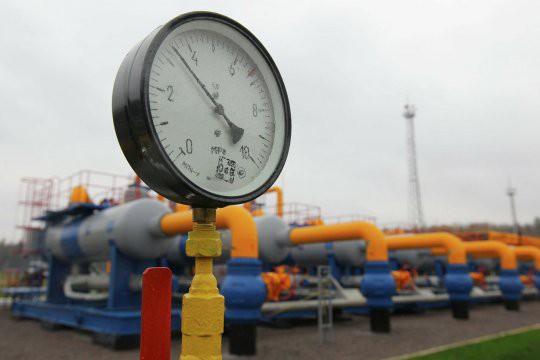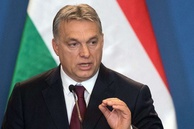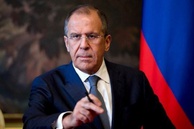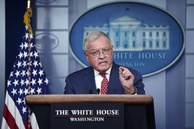The long history of gas transit across independent Ukraine began with Kiev’s initial failure to pay anything for Russian natural gas, both intended for transit to Europe and for domestic consumption, on the pretext of fraternal relations between the former Soviet republics. Later it cost the Ukrainians a meager $25 for 1,000 cubic meters of Russian gas, and that ridiculously small sum remained unchanged for quite some time. The sizeable amount of Russian gas provided at a discount price, plus domestically available oil resources, were distributed by the country’s greedy elite the following way: domestically produced gas was used on utilities, proceeds from the transit of Russian gas went to the state budget (minus the money that lined bureaucratic pockets), and Russian gas – to the industry (plus the corruption component).
Then came the Ukrainian revolutions and Kiev's desire to join "Euro-Atlantic structures" and the desire to "get off the Russian gas needle and prevent the Kremlin from using energy as a weapon." Ukraine has tried and is still trying to believe in all this by playing up to the collective West and hoping that the West will compensate Kiev for the losses caused by its revolutionary endeavors and anti-Russian antics. As a result, we see gas prices going through the roof, an energy crisis in Europe, and the completion of the Nord Stream 2 gas pipeline.
Those in power in Kiev hoped for the very last moment that the West valued their country more than it did the energy security of European countries. Much to their surprise (and only theirs), this is not so. It looks like the Europeans are interested in Russian gas supplies and are not so eager to keep Ukraine as the main transit country. Moreover, having "democratized Ukraine" to the state of an openly anti-Russian country, the West turned it into a country, whose leadership the Kremlin does not really want to talk to simply because it does not see any point in doing this. This is the reason why third countries care (or rather pretend to care) about Ukraine. Thus, in July of this year, there came out the "Joint Statement of the United States and Germany on Support for Ukraine, European Energy Security and Our Climate Goals." [i] According to it, Germany pledged to do everything in its power to make sure that the agreement between Moscow and Kiev on the transit of Russian gas across Ukrainian territory was extended for up to ten years. The statement came when it was already obvious that the construction of Nord Stream 2 would be completed, Germany resisted US pressure on this issue, Moscow paid no attention and Washington, exhausted by the battles of the presidential elections and the search for new strategies in the Old World, was trying to pit America’s European friends against Russia.
It has never been a secret that the West needs reliable transit, and this is something that Ukraine also insists on. However, Kiev has officially labelled Russia as an "aggressor country," which means that this very “aggressor” must ensure this transit and bring billions of dollars in revenues to the Ukrainian budget. This looks like a kind of "Euro-schizophrenia" where Ukraine is an anti-Russian country and simultaneously serves as a reliable transit country for Russian gas. Things do not work this way, however, and it looks like Europeans are beginning to realize this. Therefore, most of the European consumers support Nord Stream 2 even though they do not show this in public. Suffice it to mention the recent conclusion of a years-long contract for gas supplies to Hungary.
Vladimir Putin's statement, made amid soaring gas prices and growing threats to European industry, came as an energy lifeline for all Europeans.
“Russian President Vladimir Putin supported the initiative of Deputy Prime Minister Alexander Novak to increase gas supply on the market amid rising energy prices in Europe... Novak said that Russia can stabilize the situation with prices by providing additional volumes of gas on the exchange, adding that this country’s main priority is to accommodate domestic demand,” Lenta.ru reported. [ii]
Commenting on the possibility of increasing gas supplies via Ukraine, President Putin recalled that Ukraine’s gas transport system had not been repaired “for decades” and that “something could burst” there any time if gas pressure goes up.
“At the same time, it is more profitable and safer for Gazprom to operate new pipeline systems," he added. Putin thus confirmed what is already clear to all that Ukraine is an unreliable and, in fact, an extra link, and that Europe can get gas bypassing technically and politically unreliable Ukrainian pipes. He also pointed out that Gazprom would suffer losses from an increase in gas transit via Ukrainian territory, while new gas pipelines offer cheaper transit options. He added that Gazprom is saving about $3 billion a year by using new pipelines and that Russia was ready to increase gas supplies and make them cheaper for European consumers.
Gas shortages have already forced the Ukrainian government to freeze gas prices for household consumers, but prices for gas for industrial enterprises are rising along with those on European exchanges, where on October 6, they reached a very impressive $ 2,000 per thousand cubic meters and went down only after Putin’s statement came out.
Meanwhile, the head of Ukraine’s Federation of Glass Industry Employers, Dmitry Oleinik, said that this [rise in gas prices - D.B.] would lead to an inevitable rise in prices. However, producers will not be able to jack up prices indefinitely, because at some point buyers simply will not be able to cover production costs.
“The Ukrainian consumer will not even be able to cover the cost of production. Plants and factories will slowly shut down and people will lose their jobs - this is already very serious. Budget revenues will “plummet,” and expenses will skyrocket... The issue of bankruptcies is just a matter of time,” Oleinik warned. [iii]
If Ukraine continues to follow the chosen course, it will face de-industrialization. By the way, this will suit the West, but certainly not the Ukrainian industrial oligarchs, who have long been eyeing agriculture, including the prospect of turning themselves into land barons. However, the farming sector will not be happy about the high prices on gas that bakeries, sugar factories and greenhouses run on. There will be nowhere to run.
Apart from purely practical realities, the conclusions I can draw from the current energy situation in the world and Vladimir Putin's statements regarding the Ukrainian transit, are as follows:
- Gas supplies through Ukraine and to Ukraine are not solely an economic issue, given Kiev's endless anti-Russian escapades;
- This problem affects the energy security of Europe;
- Since there are several angles to this problem, it must be solved in a comprehensive manner;
- At the same time, this cannot be done exclusively in the interests of the West and Ukraine to the detriment of the interests of Russia.
As you can see, it is once again up to Kiev and its shadow patrons to decide. And winter is just around the corner...
The views of the author are his own and may differ from the position of the Editorial Board.
[i] https://interaffairs.ru/news/show/30921
[ii] https://lenta.ru/news/2021/10/07/gaz/
read more in our Telegram-channel https://t.me/The_International_Affairs

 21:26 14.10.2021 •
21:26 14.10.2021 •



























